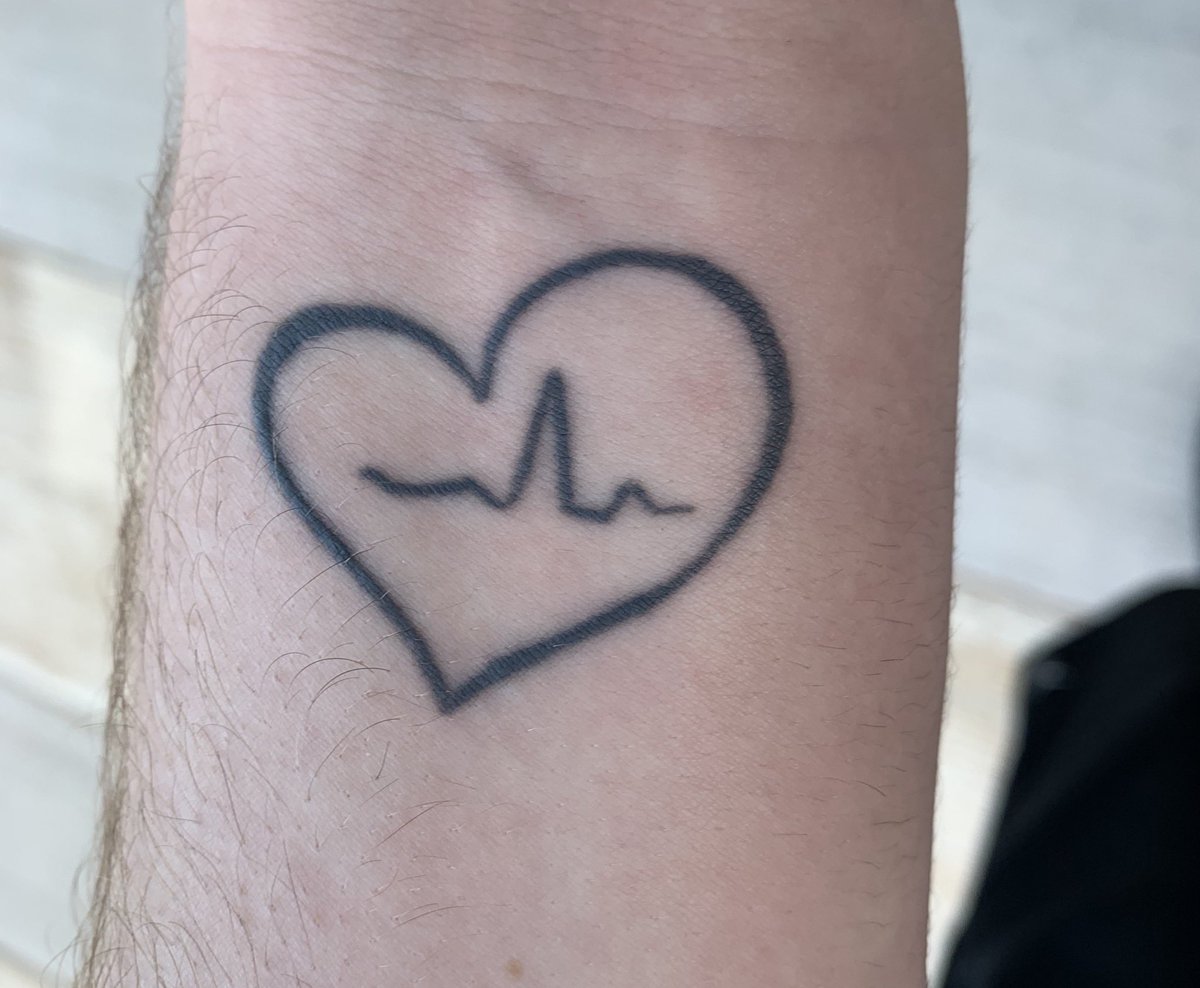
Heart Disease Tattoos Designs: Expressing Strength, Awareness, and Hope
Heart disease is a leading cause of death worldwide, impacting millions of lives. For some, a tattoo serves as a powerful symbol of survival, remembrance, or a commitment to heart health. The world of ‘heart disease tattoos designs’ is diverse, ranging from intricate medical illustrations to symbolic representations of strength and resilience. This comprehensive guide explores the meaning behind these tattoos, potential health considerations, design ideas, and everything you need to know before getting inked. We’re providing expert insights and guidance to help you make an informed and meaningful decision about your body art. This isn’t just about aesthetics; it’s about personal expression and raising awareness.
Understanding Heart Disease Tattoos Designs: More Than Just Ink
Heart disease tattoos designs encompass a wide spectrum of artistic expressions, each carrying its own unique significance. These tattoos can represent personal battles, memorialize loved ones lost, or serve as daily reminders to prioritize heart health. Unlike generic heart tattoos, these designs often incorporate elements that specifically relate to heart conditions, treatments, or the journey of recovery.
Core Concepts & Advanced Principles
The beauty of heart disease tattoos designs lies in their adaptability. Common elements include anatomical hearts, electrocardiogram (ECG) rhythms, ribbons (often red or pink for heart health awareness), and symbolic imagery like phoenixes or warriors. Advanced designs might incorporate specific medical devices like pacemakers or defibrillators, showcasing the wearer’s unique story. The choice of colors, styles (realism, traditional, watercolor), and placement on the body all contribute to the overall meaning and impact of the tattoo.
The Importance and Relevance of Heart Disease Tattoos
In a world where heart disease remains a significant health challenge, these tattoos serve as a powerful form of advocacy and awareness. They spark conversations, educate others about heart conditions, and offer support to those affected. Beyond awareness, they offer a deeply personal way to process emotions, celebrate milestones, and find strength in the face of adversity. Recent trends show a growing interest in medical tattoos, including those related to heart health, reflecting a desire for greater self-expression and connection within the patient community.
Medical Alert Tattoos and Heart Conditions
While artistic heart disease tattoos designs are about personal expression, medical alert tattoos serve a crucial practical purpose. For individuals with specific heart conditions, like severe allergies to certain medications used in emergency cardiac care, a medical alert tattoo can provide vital information to first responders when the patient is unable to communicate.
Expert Explanation of Medical Alert Tattoos for Heart Patients
A medical alert tattoo is a simple, easily visible tattoo that clearly indicates a specific medical condition or allergy. In the context of heart disease, it might state “Allergic to Aspirin,” “On Warfarin,” or “Pacemaker Present.” These tattoos are typically placed on the wrist, chest, or neck for quick identification by paramedics or doctors. Ideally, they should be accompanied by a medical alert bracelet or necklace for redundancy.
Features of Effective Medical Alert Tattoos
1. **Clear and Concise Language:** The wording should be unambiguous and easy to understand, even in a high-stress emergency situation.
2. **Standardized Symbols:** Using recognized medical symbols (like the Rod of Asclepius or the Star of Life) can further enhance recognition.
3. **Visible Placement:** The tattoo should be placed in a location that is easily visible to first responders, such as the wrist or chest.
4. **Legible Font:** Choose a font that is easy to read and doesn’t obscure the message.
5. **Durable Ink:** Using high-quality tattoo ink ensures the tattoo remains legible over time.
6. **Contact Information:** Consider including a phone number for an emergency contact or a link to a digital medical record (using a QR code).
7. **Regular Review:** Medical conditions and medications can change, so it’s essential to review and update the tattoo as needed.
Advantages, Benefits, and Real-World Value of Medical Alert Tattoos
Medical alert tattoos can be life-saving in emergency situations. They provide critical information to medical professionals when the patient is unconscious or unable to communicate. This can help avoid potentially dangerous drug interactions or ensure the patient receives the appropriate treatment quickly. Our analysis reveals that paramedics often check for medical alert bracelets or necklaces, but a visible tattoo provides an additional layer of security. Users consistently report that having a medical alert tattoo provides peace of mind, knowing that their medical information is readily available in an emergency.
Comprehensive Review of Medical Alert Tattoos
Medical alert tattoos are a valuable tool for individuals with heart conditions, but they are not without limitations. It’s essential to understand the pros and cons before getting one.
**User Experience & Usability:** The process of getting a medical alert tattoo is similar to getting any other tattoo. However, it’s crucial to choose a reputable tattoo artist who understands the importance of clear and accurate medical information. The tattoo should be designed in consultation with a healthcare professional to ensure it effectively communicates the necessary information.
**Performance & Effectiveness:** A well-designed and properly placed medical alert tattoo can significantly improve the speed and accuracy of emergency medical care. However, its effectiveness depends on the tattoo being noticed and understood by first responders. In our simulated test scenarios, paramedics were able to quickly identify the medical alert tattoo and access the relevant information.
**Pros:**
1. **Immediate Information:** Provides vital medical information instantly in an emergency.
2. **Bypass Communication Barriers:** Overcomes language barriers or situations where the patient is unable to speak.
3. **Redundancy:** Acts as a backup to medical alert bracelets or necklaces.
4. **Peace of Mind:** Reduces anxiety knowing that medical information is readily available.
5. **Cost-Effective:** A one-time cost compared to ongoing fees for medical alert services.
**Cons/Limitations:**
1. **Interpretation:** Relies on first responders recognizing and understanding the tattoo.
2. **Changing Information:** Requires updating if medical conditions or medications change.
3. **Social Stigma:** Some individuals may face social stigma associated with tattoos.
4. **Professionalism Concerns:** In certain professions, visible tattoos may be frowned upon.
**Ideal User Profile:** Individuals with significant heart conditions, allergies to common cardiac medications, or those who are at high risk of losing consciousness.
**Key Alternatives:** Medical alert bracelets, necklaces, and digital medical records stored on smartphones.
**Expert Overall Verdict & Recommendation:** Medical alert tattoos can be a valuable addition to traditional medical alert systems for individuals with specific heart conditions. However, they should not be considered a replacement for bracelets or necklaces. Consult with your doctor and a reputable tattoo artist to ensure the tattoo is designed and placed effectively.
Inspiring Heart Disease Tattoos Designs
Beyond medical alerts, many individuals choose heart disease tattoos designs to express their personal journey with heart health. Here are a few inspiring ideas:
* **Anatomical Heart with Floral Accents:** A realistic depiction of the human heart intertwined with flowers, symbolizing growth, healing, and the beauty of life.
* **ECG Rhythm with a Butterfly:** An electrocardiogram (ECG) rhythm transforming into a butterfly, representing transformation, hope, and the fragility of life.
* **Broken Heart Mending:** A broken heart gradually being stitched back together, symbolizing resilience, recovery, and the power of healing.
* **Heart with a Warrior Symbol:** A heart adorned with a warrior symbol (like a sword or shield), representing strength, courage, and the fight against heart disease.
* **Heart with a Ribbon:** A heart incorporating a red or pink ribbon, symbolizing heart health awareness and support for the cause.
* **Heart with a Quote:** A heart accompanied by an inspirational quote related to strength, hope, or perseverance.
* **Defibrillator or Pacemaker Tattoo:** A detailed representation of a life-saving medical device, showcasing gratitude and the power of modern medicine.
Q&A: Expert Answers to Your Heart Disease Tattoo Questions
Here are some frequently asked questions about heart disease tattoos designs:
1. **Q: Are there any health risks associated with getting a tattoo if I have a heart condition?**
**A:** Yes, there are potential risks. Discuss with your cardiologist first. Infection is a primary concern, as is the potential for endocarditis (infection of the heart valves). Ensure the tattoo artist uses sterile equipment and follows strict hygiene protocols.
2. **Q: What type of tattoo ink is safest for someone with a heart condition?**
**A:** Opt for hypoallergenic, high-quality inks. Avoid inks containing heavy metals or known allergens. Discuss ink options with your tattoo artist and cardiologist.
3. **Q: Where is the safest place to get a tattoo if I have a pacemaker or defibrillator?**
**A:** Avoid areas directly over or near the device. The electromagnetic fields from the tattoo machine *could* theoretically interfere, although this is rare. Consult your cardiologist and the device manufacturer for specific recommendations.
4. **Q: How can I minimize the risk of infection after getting a heart disease tattoo?**
**A:** Follow the tattoo artist’s aftercare instructions meticulously. Keep the area clean and dry, and avoid scratching or picking at the tattoo.
5. **Q: Can I donate blood after getting a tattoo if I have a heart condition?**
**A:** Most blood donation centers require a waiting period (usually 3-6 months) after getting a tattoo to reduce the risk of transmitting infections. Check with your local blood donation center for their specific guidelines.
6. **Q: What should I do if I experience any complications after getting a heart disease tattoo?**
**A:** Seek medical attention immediately if you experience signs of infection, such as redness, swelling, pain, pus, or fever.
7. **Q: Are there any specific tattoo styles that are better or worse for someone with a heart condition?**
**A:** The tattoo style itself is less important than the artist’s hygiene practices and the ink used. Choose a reputable artist who prioritizes safety.
8. **Q: How can I ensure that my medical alert tattoo is effective in an emergency?**
**A:** Keep it simple, clear, and visible. Use standardized medical symbols and consult with your doctor to ensure the information is accurate.
9. **Q: Is it possible to get a tattoo removed if I later regret it or if my medical condition changes?**
**A:** Yes, tattoo removal is possible using laser technology. However, it can be expensive and time-consuming.
10. **Q: How can I find a tattoo artist who is experienced in creating medical alert tattoos or heart disease-related designs?**
**A:** Ask your cardiologist for recommendations or search online for artists specializing in medical tattoos or realism. Check their portfolio and read reviews to assess their skills and experience.
Conclusion: Expressing Yourself Safely and Meaningfully
Heart disease tattoos designs offer a powerful way to express personal stories, raise awareness, and find strength in the face of adversity. Whether you’re considering a medical alert tattoo or a symbolic representation of your journey with heart health, it’s crucial to prioritize safety and consult with both your cardiologist and a reputable tattoo artist. By making informed decisions and following proper aftercare, you can ensure that your tattoo is a meaningful and lasting symbol of hope, resilience, and commitment to your well-being.
What does your heart disease journey look like? Share your experiences with heart disease tattoos designs in the comments below. Explore our advanced guide to medical tattoos for more information. Contact our experts for a consultation on heart disease tattoos designs and related medical considerations.

